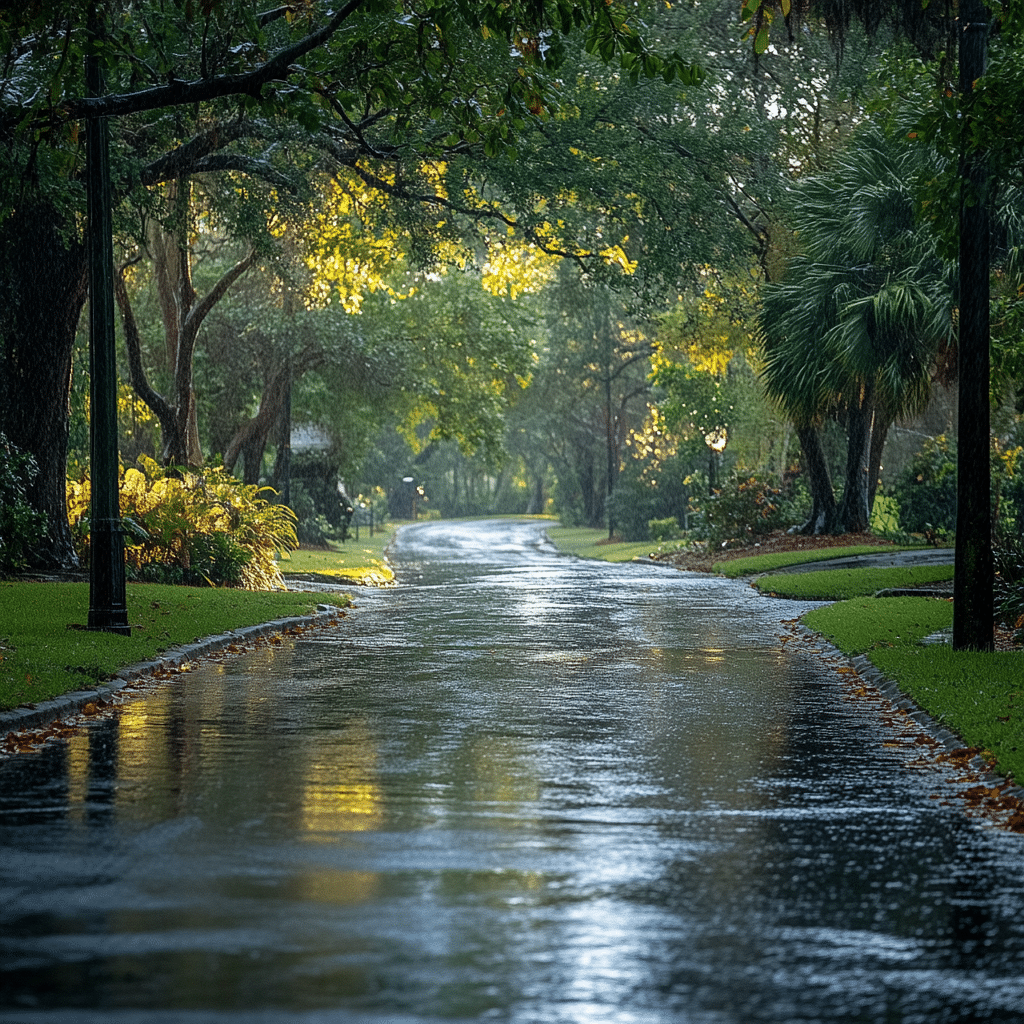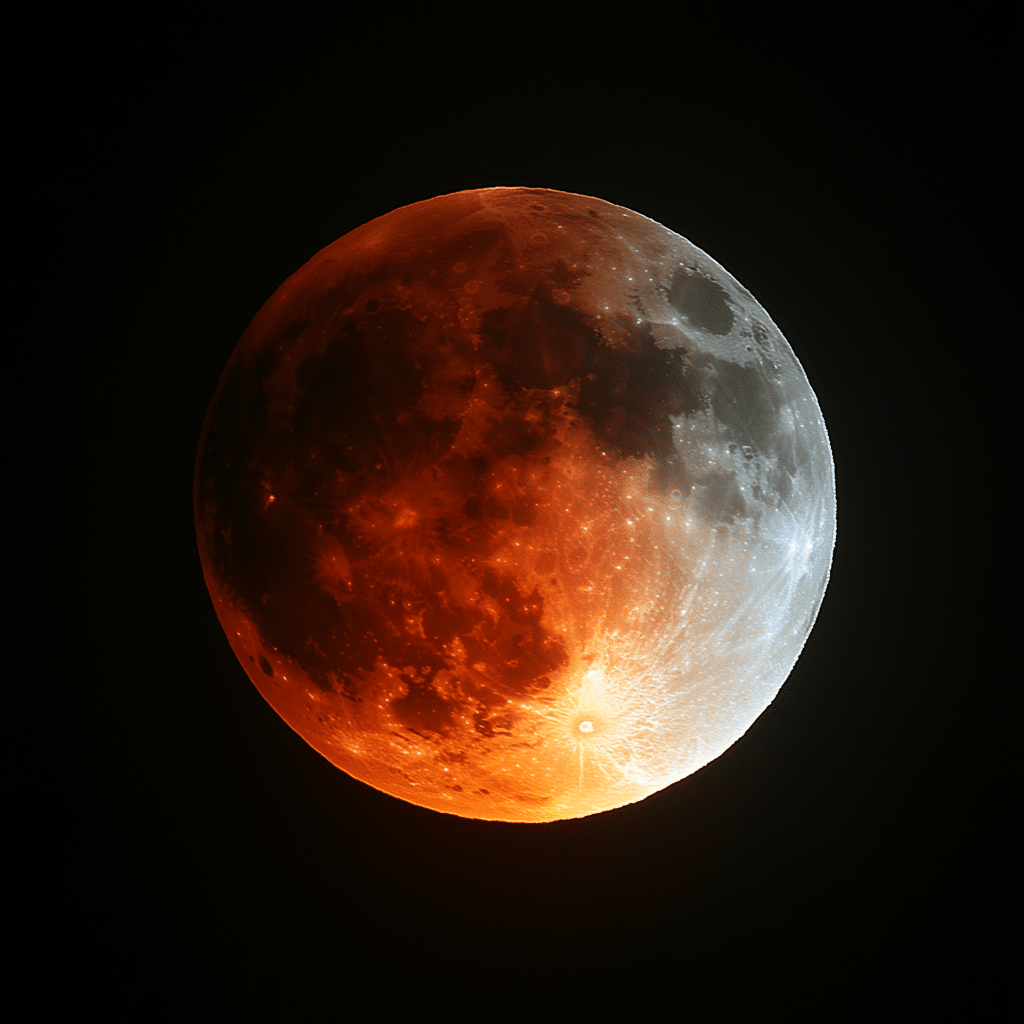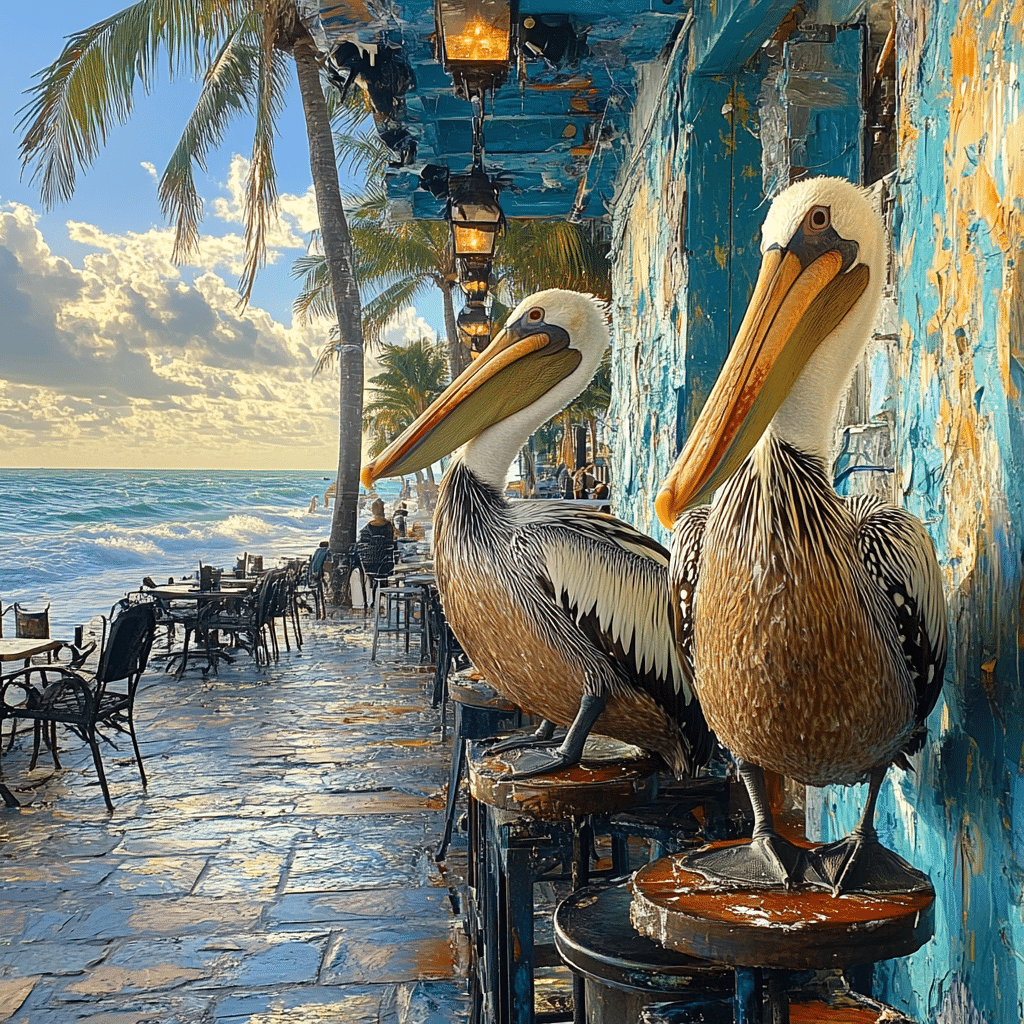Understanding the Greece On Fire Crisis
As summer unfurled its scorching wings over Greece in 2024, the country found itself grappling with an inferno of unprecedented magnitude. The fierce wildfires that erupted were, to say the least, relentless. It all started with a spark in Alexandroupoli, followed by the engulfing flames in the forest of Dadia and Rodopi. By August, the fires had spread to Boeotia and danced dangerously close to the outskirts of Athens in Parnitha.
The Greek fire services, backed by a brave assembly of local and international volunteers, battled tirelessly against the blazes. Regions like Attica and the Peloponnese were particularly hard-hit. By the time the embers cooled, the EU’s civil protection service reported a charred landscape stretching over 810 square kilometers—an expanse larger than New York City. Truly, these figures pinned the 2024 season as one of the harshest compared to its predecessors.
Behind Greece’s Environmental Catastrophe: Contributing Factors to the Intense Wildfires
Unpicking the threads behind the catastrophic fires, it’s clear that a complex tapestry of factors fanned the flames. Climate change played the villain with a vengeance. Temperature records tumbled like dominoes, and the land dried under drought’s unforgiving stare. Greece’s weather anomalies stood as a stark billboard advertising the climate crisis.
But it wasn’t just Mother Nature’s doing. Land management—or the lack thereof—and urban planning missteps threw gasoline on the situation. Experts in forest management scratched their heads, bemoaning misdirected strategies and the absence of firebreaks that could have slowed the inferno’s rampage.
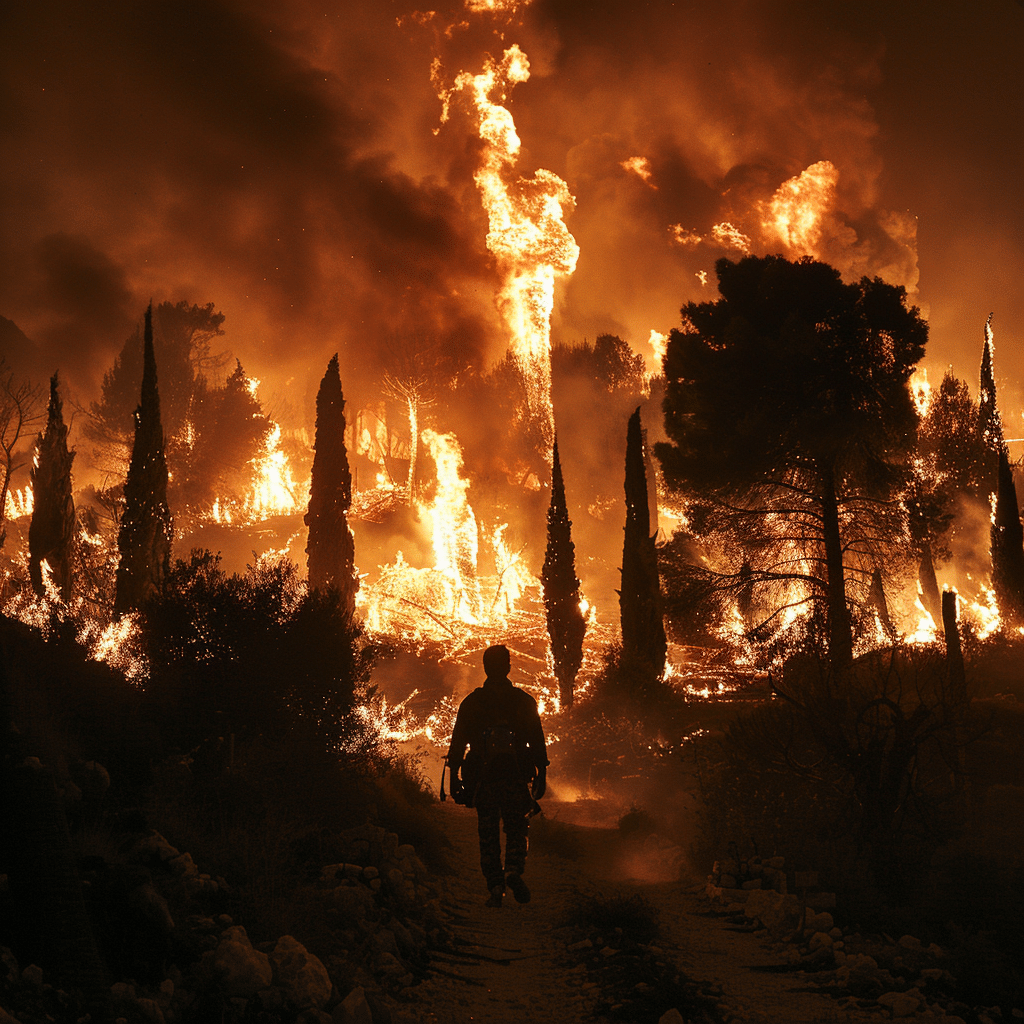
| Area Affected | Date of Blaze | Area Burned | Response Details | International Support | Environmental Impact |
| Alexandroupoli | August 2023 | Not specified | Local firefighting efforts | Not reported | Not specified |
| Dadia Forest, Rodopi | August 2023 | Not specified | Local firefighting efforts | Not reported | Damage to biodiversity |
| Boeotia | August 2023 | Not specified | Local firefighting efforts | Not reported | Agricultural damage |
| Parnitha | August 23 | More than 810 sq km | 200 firefighters, 65 vehicles, 15 aircraft | Support from Sweden, Germany | Loss of forest cover; ecological impact |
| Fyli, Mount Parnitha | August 23 | Area around Fyli and Menidi not specifically quantified | 200+ firefighters, volunteers, aerial and ground units | Sweden and Germany aircraft | Threat to historical sites, wildlife |
Frontline Stories: The Heroes Battling Greece on Fire
Behind the plumes of smoke and the knee-high ashes were stories of indomitable courage. Firefighters and emergency responders, their faces smeared with soot, became the portraits of heroic resistance. Aerial support units from as far as Sweden and Germany swooped in, their aircraft painting the skies with hope. The tales of these unsung heroes, such as Giannis Mouzakis, who led a squadron of firefighters through Menidi’s ember rain, brought both tears and pride to the eyes of the Greek people.
Vivid stories trickled in from the frontline, like that of Eleni Stavrou, a volunteer who recounted the midnight dash to evacuate her village, guided only by the glow of the advancing fires. Courage, indeed, found a breeding ground in the heart of disaster.
Economic Inferno: Assessing the Financial Repercussions of Greece’s Wildfires
Let’s talk turkey here. The financial blow dealt by the 2024 wildfires scorched much more than mere landscapes. Greece’s tourism, the jewel in its economic crown, took a staggering hit. The plumes of smoke could as well have been euros burning through the coffers. Agriculture didn’t fare any better, with lands ripe for harvest turned to ashtrays.
Insurance companies had their phones ringing off the hook, as claims piled up like kindling. The damage to property skyrocketed, and deciphering the code for economic recuperation became the million-euro question. Here, the EU stepped in, unraveling the purse strings for aid, while whispers of more substantial, long-term revival plans buzzed through the halls of power.
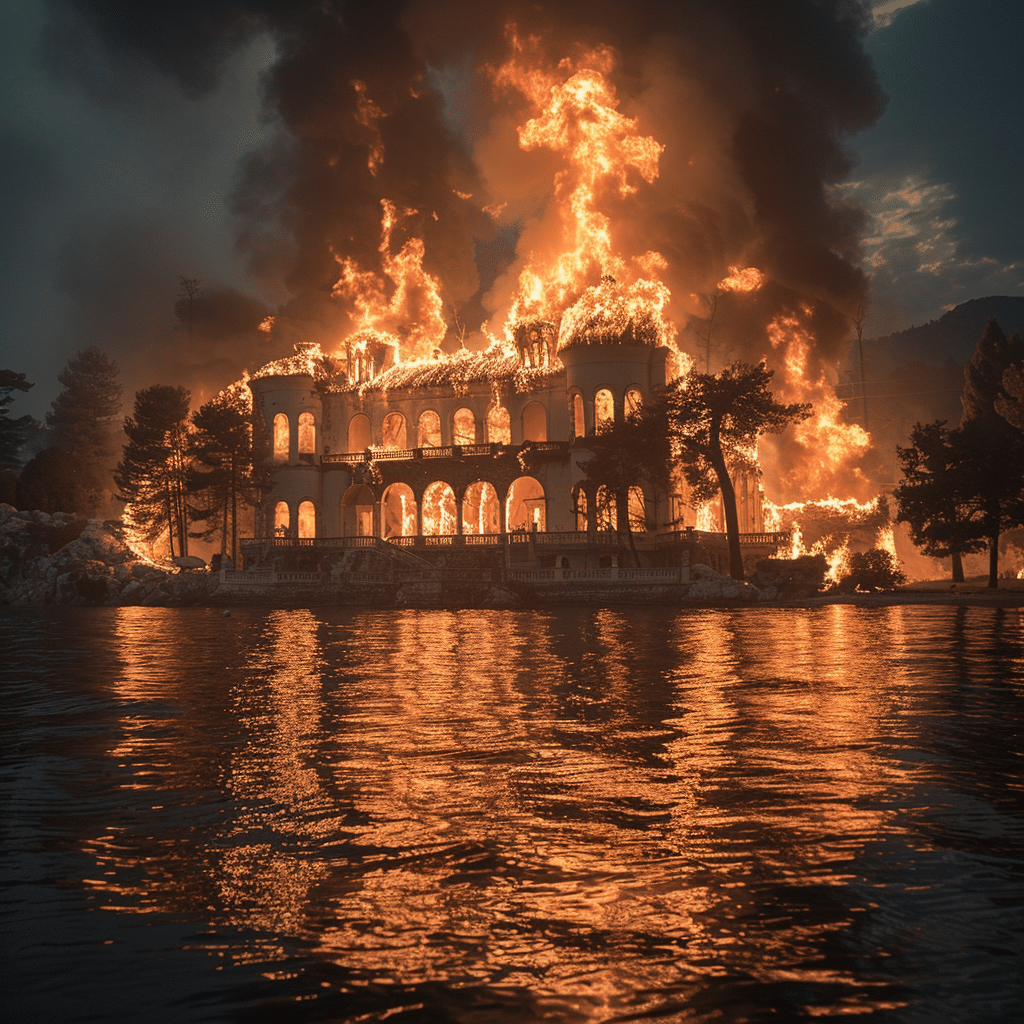
Scorched Earth Policies: Government’s Response to Greece on Fire
Moving up the chain of command, critique falls on the government’s charred doorstep. Could the blaze have been contained earlier? Were the crisis management and relief efforts up to par? It was a hot potato, no one wanted to hold. The policies prior to the disaster now appeared as fragile as a sandcastle at high tide, and post-crisis measures didn’t escape scrutiny either.
PM Nikos Dendias’ assurances echoed through press conferences, yet many questioned whether actions would follow words. The political barometer swung wildly, and with it, the risk of a shift in public confidence.
Global Flame Support: International Aid and Alliances to Extinguish Greece on Fire
As Greece’s summer skies darkened, a global coalition illuminated the horizon. International camaraderie took center stage, with countries extending a helping hand. Aid poured in, reassuring the Greeks that they were not alone in quelling the inferno.
Stories of solidarity emerged, like that of Kelly Marie tran, who advocated for climate change awareness following the disaster and propelled aid efforts into the social spotlight. It was a testament to the fact that when nature blazes a warpath, the world can unite to beat back the flames.
Fires of the Future: Innovations and Strategies to Prevent Another Greece on Fire
Post-fire Greece turned its eyes to the horizon, where innovation promised a silver lining. Satellite monitoring, AI predicting fire outbreaks, and advanced firefighting equipment entered the lexicon of prevention. Sofia Antonopoulou, an esteemed climate scientist, shed light on these new frontiers, making it clear that lessons from the 2024 fires would galvanize a tech-driven shield against nature’s fury.
Talk of drones humming through the sky, scouting for risks, became more than sci-fi; it was the new battle plan. Sprawling research in forestry management opened doors to strategies that could one day make blazes like Greece’s summer ordeal a page in the history books.
Rebirth from Ashes: Rehabilitation and Recovery in the Aftermath
In the wake of such destruction, a phoenix of community spirit arose. The road to rehabilitation was long, but not lonely. Countless initiatives took root, aiming to nurse the land back to health and armor it against future assaults. From the ashes sprouted not only seedlings but determination, a drive to heal and fortify.
Initiatives like “Green Tomorrow,” spearheaded by local NGOs, planted the seeds of hope and transformation. Ecological recovery didn’t just echo in boardrooms; it was a chorus sung by the whole of Greece, a melody of resilience poised against adversity.
Greece on Fire: From Spark to Beacon
In igniting the conversation around ‘Greece on Fire,’ we shine a light on the fragility of human interaction with our environment and the strength of communal response in the face of such challenges. The 2024 summer blazes in Greece serve as a stark reminder of our collective vulnerability to climate change while simultaneously inspiring with tales of human heroism and international solidarity. Through ongoing prevention strategies, innovations, and a deepened commitment to planetary stewardship, we may yet steer away from the brink of future fiery summers, not just in Greece, but globally.
Greece on Fire: Navigating Through the Flames of Trivia
In the blazing heat of summer, as Greece confronted ravaging wildfires, one might wonder how the locals kept a cool head—or if they simply swapped out their stylish Mens casual dress shoes for fireproof boots. But here’s some trivia that adds a spark of levity to the severity: the ancient Greeks might not have faced severe blazes like today, but they sure knew how to invent drama. You might find yourself thinking that, had there been television back in ancient Greece, illustrious screenwriter Amy Sherman-palladino would’ve had a field day scripting those theatrical fire-fighting sagas!
Transitioning to a slightly less fiery note, some say that when faced with adversity, one must keep calm and carry on, possibly while sipping on a robust glass of Bookers Bourbon. Imagine the paradox of a modern Greek, standing amidst the smoky haze, channeling the spirit of Dionysus, the god of wine and revelry. It would be a toast to resilience in the face of the inferno—certainly an unusual, if not slightly jarring, image.
Speaking of jarring, let’s slice into something different, shall we? While mechanically separated chicken has absolutely nothing to do with Greece’s relentless summer fires, it’s worth noting that the process behind it is probably as perplexing to many as the unpredictable nature of wildfires. And let’s not brush off the possibility that a Greek affected by the fires surely pined for comfort food that didn’t entail mysterious poultry products.
Furthermore, it’s curious to think about what little escapes people might seek during extreme stress. For instance, would the application of fake Eyelashes flutter some semblance of normalcy into the life of a local, or would it be akin to fiddling while Rome burns—or, in this case, while “Greece is on fire”? Then there’s acclaimed actress Jennifer Ehle, who might not have any ties to Greek wildfires, but her performances often provide the perfect distraction from such harsh realities. It’s the subtle art of finding solace in storytelling, a true testament to human resilience.
As Greece continues its battle against these severe blazes, it serves as a stark reminder of nature’s immense power and unpredictability. Between the swapping of Mens dress Sneakers for fire-retardant gear and the historic tales that could arise from the ashes, the country’s spirit remains as enduring as the mythology it birthed. Now, that’s a fact as riveting as the tales of old—one that adds an interesting twist to our collection of facts and keeps the embers of trivia burning bright.
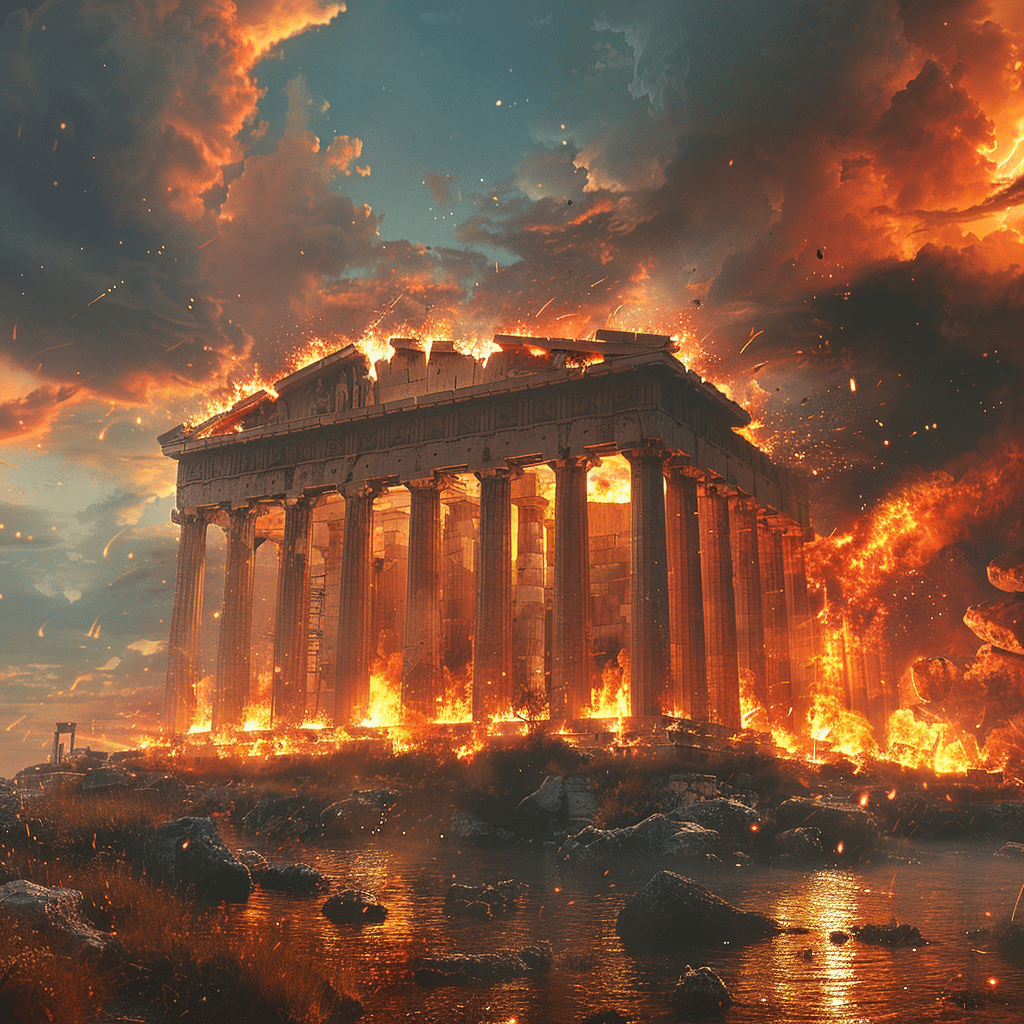
Is there fire in Greece right now?
– Whew, lucky for us, there’s currently no fire raging in Greece at the mo’. The last ones were a real doozy though, torching places from Alexandroupoli to Parnitha back in August. But as of September 7, 2023, we’re in the clear with no fire warnings up and blazing.
Which Greek islands are on fire?
– No need to sound the alarm bells for the Greek islands; they’ve managed to dodge the fires this time around. Keep an eye on the news just in case, but for now, they’re as clear as the beautiful Greek waters.
How much of Greece was burnt?
– Talk about scorched! Over 810 square kilometers of Greek land, which, if you can believe it, is more extensive than the Big Apple itself, was gobbled up by the flames. That was one hot mess no one wanted a piece of.
How close to Athens are the wildfires?
– Alright, here’s the scoop: the fires got pretty darn close to Athens, especially that pesky blaze near Fyli. We’re talking a mere stone’s throw away—around 20 km north. Thankfully, a band of over 200 firefighters gave it their all, and that fire’s history.
Is it safe to go to Greece right now?
– As things stand, Greece is waving the green flag for travelers. There aren’t any fires currently, which is a breath of fresh air for tourists and locals alike. So go ahead, pack your bags—Greece awaits with open arms and fire-free.
What part of Greece is burning?
– The region that had it rough with the fires was mainly on the mainland, with areas like Dadia, Rodopi, Boeotia, and Parnitha getting the brunt of it. The islands seem to have dodged a fiery bullet this time ’round.
Is it safe for Americans to travel to Greece?
– Americans looking for a Greek getaway can let out a sigh of relief; it’s safe to travel to Greece now. Just remember, it’s always smart to check the latest travel advisories before you jet off, you know, just to play it safe.
Is Santorini affected by the fires?
– Santorini is the picture of perfection and, lucky for Instagrammers everywhere, it’s untouched by the fires. Your dreamy sunset snaps are waiting, so no worries about this island gem being in the hot seat.
Why are fires happening in Greece?
– Yikes! The reasons behind Greece’s fires are a complex mix, think a fiery cocktail of hot weather, dry vegetation, and the occasional careless human act. It’s not simply one thing, but rather a sizzling combo that leads to these disasters.
Who is starting the fires in Greece?
– Pointing fingers isn’t easy, especially with fires. While sometimes it’s nature’s doing with a stray lightning strike, other times, humans might accidentally (or not-so-accidentally) set the spark. Bottom line, it’s a tricky business finding the match behind the blaze.
How did we lose Greek Fire?
– The secret of Greek Fire, a sizzler of an ancient weapon, got lost in the smoke of history. Seems like even back then, folks kept their recipes closer than their friends. And just like that killer chili recipe from your grandma, some secrets are gone for good.
How bad are the Greek fires?
– The Greek fires were no walk in the park; they were downright brutal. We’re talking vast swathes of land turned to ashes, wildlife on the run, and folks scrambling for safety. It was a full-on inferno that had everyone sweating bullets.
Is it safe to travel to Athens now?
– As of now, Athens is all systems go for travel. The wildfires have taken a backseat, and the city is as welcoming as ever. So if you’re itching for some history and souvlaki, Athens is ready to show you a good time, sans fire drama.
Are the fires getting worse in Greece?
– Fingers crossed and knock on wood, the fires in Greece aren’t currently showing their fiery faces. But that doesn’t mean the country’s fire season is a thing of the past. Stay tuned and always check the latest before planning your Greek odyssey.
Is Greece being evacuated?
– When the flames were licking at their heels, some places did need to pack up and skedaddle. But that was then, and this is now: no evacuation orders are ringing out, so Greece is yours to visit without having to scramble for the nearest exit.

